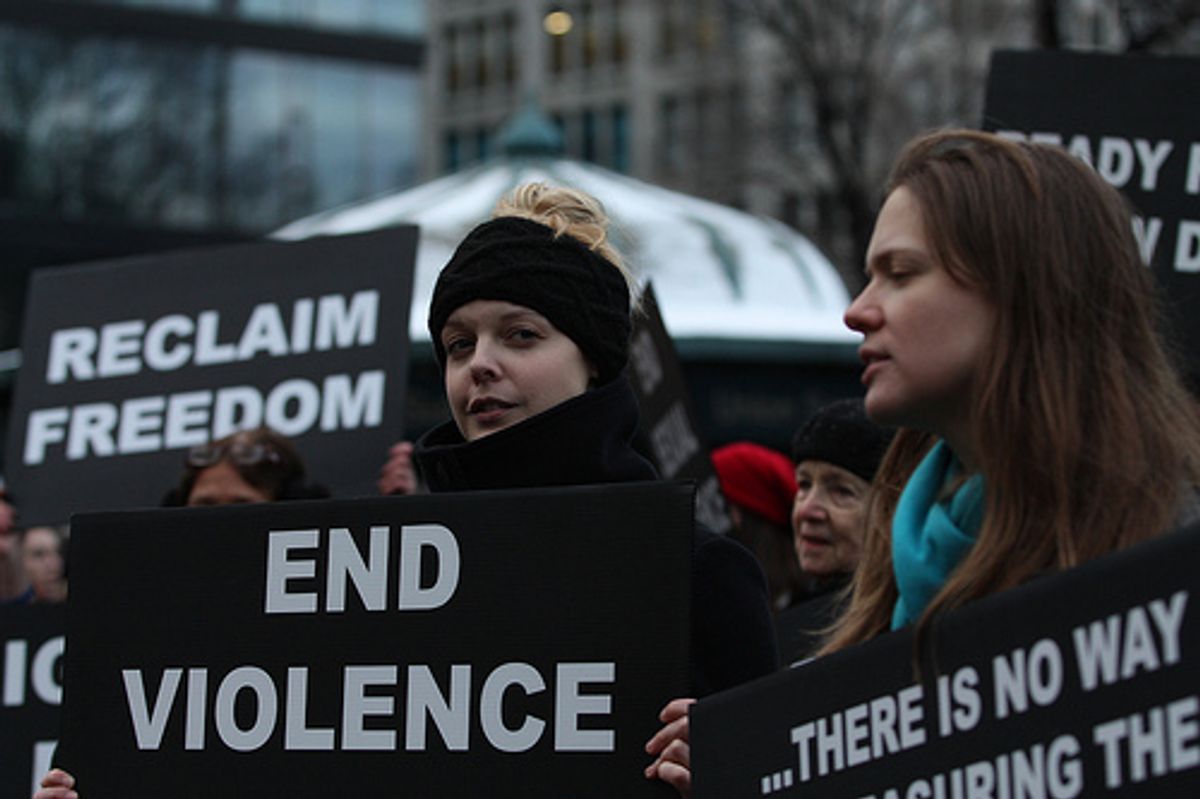After failing to act on reauthorizing the Violence Against Women Act for more than a year, Congressional dysfunction has once again left victims of domestic violence and sexual assault to fend for themselves.
Funding for sexual assault and domestic violence programs was already limited due to previous cuts in state and federal budgets, but the sequester's automatic spending cuts have issued a serious blow to vital service providers, according to a report from Mother Jones' Tim Murphy:
[T]he Justice Department’s Office on Violence Against Women sent an email to the hundreds of non-profits and government agencies around the country that rely on its annual grants. The message was grim: Due to cuts mandated by the 2011 Budget Control Act, better known as sequestration, programs that fight domestic violence and sexual assault would see a $20 million drop in funding over the next year...
The projections are bleak. Sen. Tom Harkin’s (D-Iowa) office estimates that 70,120 fewer domestic violence victims will have access to recovery programs and shelters; 35,900 fewer people will get help obtaining non-shelter services such as restraining orders and sexual assault treatment. Cuts to programs related to the Victims Against Crime Act will hurt another 310,574 people.
Murphy also provided a look at state- and agency-specific service providers that have reduced staffing, hours of operation or other vital services in the wake of budget cuts; the damage is far from hypothetical:
- In Shreveport, Louisiana, the Sexual Assault Nurse Examiners, a group of 11 nurses who make house calls to collect evidence from rape victims, is considering closing for good.
- The Kentucky Domestic Violence Association is eliminating a sexual assault prevention coordinator and asking another to go part time; if funding isn’t restored by next year, it may be forced to close shelters.
- The Department of Defense, which originally planned on hiring 829 sexual assault response coordinators to combat the epidemic of rape in the military, said recruitment for some positions will be put on hold.
- In Rhode Island, the biggest enemy is the calendar. On June 1, the Rhode Island Coalition Against Domestic Violence is dramatically scaling back its victims' advocacy services to four days a week. Deb DeBare, RICADV's executive director, says that by closing on Mondays, her program will ultimately serve about 1,600 fewer people than it would if it were operating at capacity. That's 1,600 people for whom it will be that much harder to get restraining orders or custody rights.
Demand for services continue to rise, but Congress has not put domestic violence programs (or, more acutely, the health and safety of survivors of sexual and domestic violence) on the shortlist for emergency action, like lawmakers' recent fix to flight service delays.
Other programs Congress has deemed less important than fixing longer airport wait-times include Head Start, Meals on Wheels, long-term unemployment and lifesaving health treatment for cancer patients.



Shares